


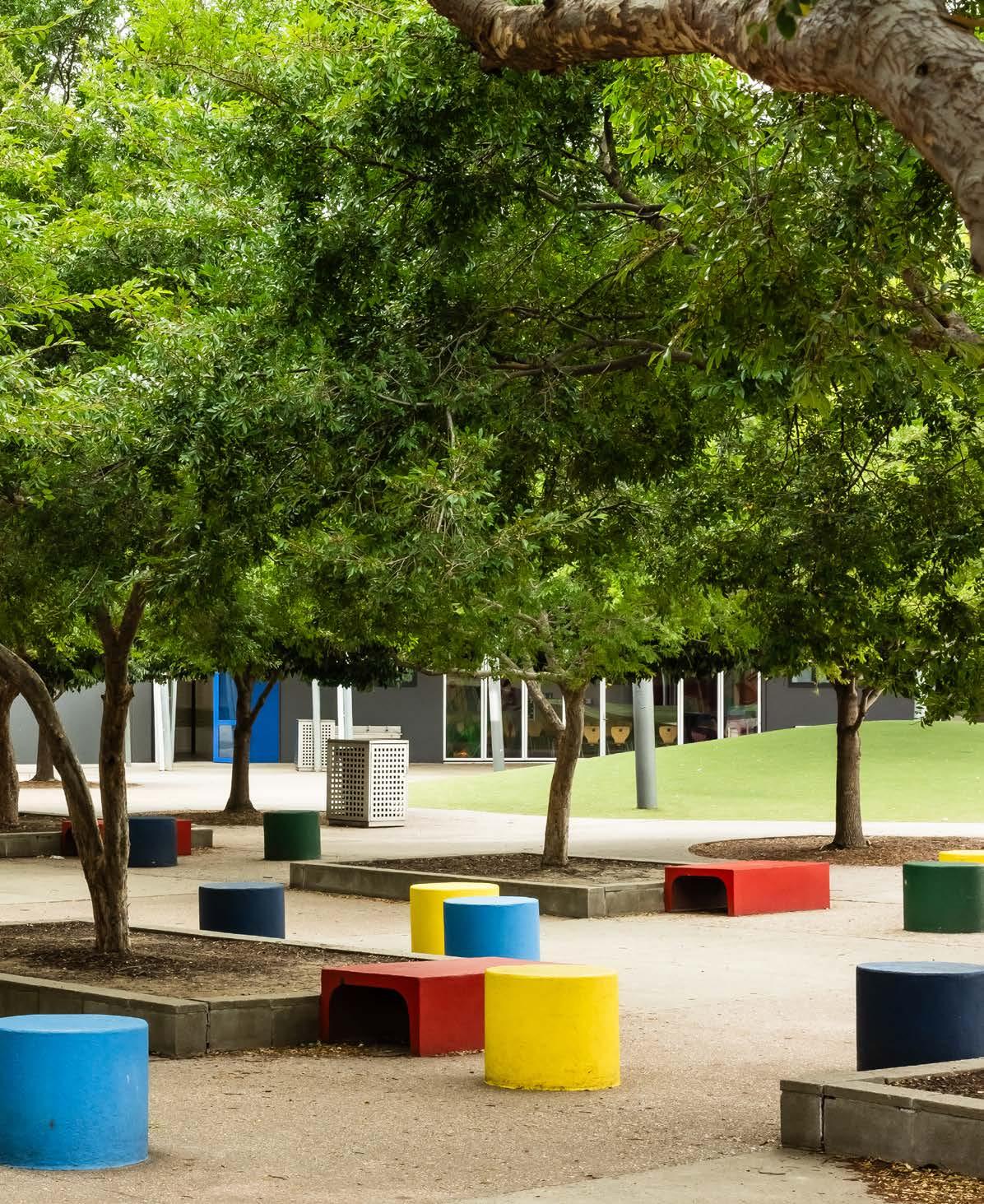





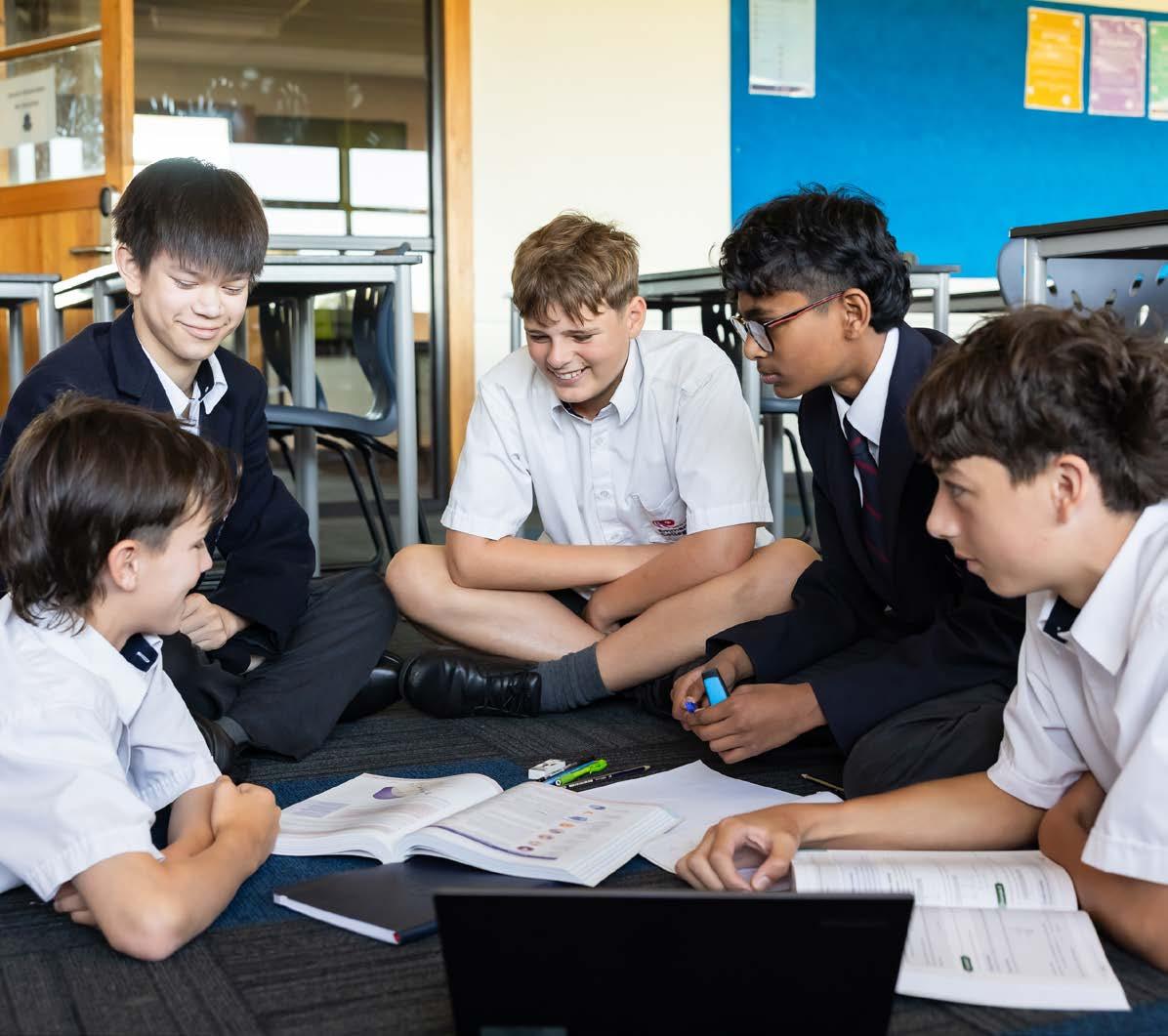
The Emmanuel College Years 7–9 Course Guide outlines our learning and teaching program, which focuses on building strong foundations in literacy and numeracy while supporting students’ personal, social, and presentation skills. Our courses are aligned with the Victorian Curriculum and are designed to meet the developmental needs of students at each stage of junior secondary school.
Inside this guide, you’ll find:
• An overview of core subjects for Years 7–9
• Information on Year 9 elective options
• Details a bout our Literacy and Numeracy Support Program
This guide is designed to help students and families understand the learning programs offered in the junior years at Emmanuel College. It provides an overview of the core curriculum from Years 7 to 9, and an introduction to the elective choices available in Years 8 and 9.
Italian: Authentic Italy – Full Year
Japanese – Full Year
Spanish – Full Year
Science
Biology & Chemistry
Physics & Earth Sciences
Technology
Technology: Digital Technology
Technology: Wooden Mechanical
Toys & Games
Technology: Food Studies
Technology: Robotics
Technology: Jewellery and Metalwork
Technology: Autonomous Vehicles
Fashion for the Future (Textiles)
VICTORIAN PATHWAYS CERTIFICATE [VPC]
The VPC is a flexible certificate for students in Years 11 and/or 12 who need a more individualised program.
The VPC is:
• Based on applied learning principles.
• A standalone foundation Course.
• A pathway to Entry Level VET courses.
• Standards based with schoolbased assessment.
The VPC is not a VCE equivalent, it has no external assessments or exams, and students do not receive an ATAR.
The VCE is a senior secondary certificate designed to be completed by students over a minimum of two years.
Units 1 & 2 can be completed as single units. Units 3 & 4 are designed to be taken as a sequence.
Students study units based on interest and pathways prerequisites. Approved VET courses or VM subjects are an option. Standards based assessments and/or external examinations and ATAR (if scored).
Students study units with a vocational and applied learning focus. A VET course must be included. Students may choose a general VCE study within their VM program. Standards based assessment, no external exams, no ATAR.
VOCATIONAL EDUCATION AND TRAINING [VET] VET
Emmanuel College Curriculum aligns with the Victorian Curriculum.
The Victorian Curriculum F–10 sets out what all students should learn from Foundation to Year 10, across both learning areas and general capabilities. It provides a clear framework that supports students’ academic progress, personal development, and preparation for life beyond school.
Learning is organised into distinct learning areas—such as English, Mathematics, Science, and the Arts—as well as general capabilities, including Critical and Creative Thinking, Ethical Understanding, and Intercultural Understanding. Together, these support the development of well-rounded learners.
LEARNING AREAS
CAPABILITIES
Capabilities are cross-curricular skills that support students to thrive as learners and active citizens across all learning areas.
Learning Areas are the core subject disciplines that provide the essential knowledge and skills students are expected to develop. THE ARTS CRITICAL & CREATIVE THINKING LANGUAGES
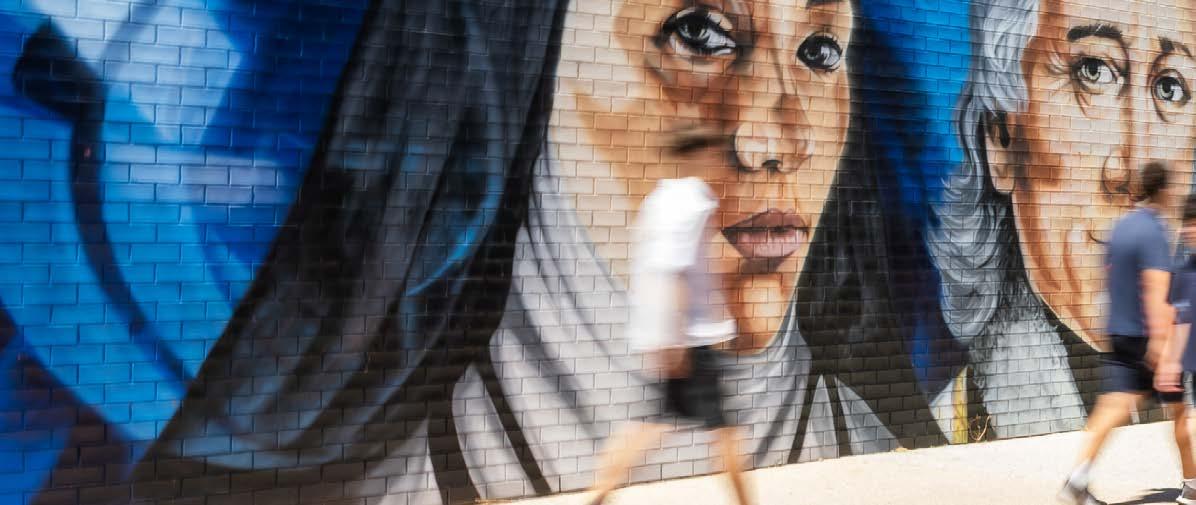
The Year 7 program complies with the expectations of The Victorian Curriculum which sets out what every student should learn during their first eleven years of schooling. The Year 7 program includes a common set of knowledge and skills required for life-long learning, social development and active and informed citizenship.
The subjects studied in Year 7 provide students with the essential knowledge and skills that prepare them for continued learning in Year 8.
Each week at Emmanuel College our students participate in a formal pastoral program aimed at supporting them holistically with guidance, activities and information specific to their age and development. The pastoral program is led by teaching staff and is an opportunity for students to engage with exploring themselves as learners, as young people of faith and as positive contributors in the lives of others and their world.
All year 7 students will study these subjects in Semesters One and Two.
• Religious Education
• English
• English as an Additional Language (by invitation)
• Mathematics
• Science
• Humanities
• Health & Physical Education
• Pastoral Program
All Year 7 students will study these subjects in either Semester One or Two.
• The Arts - Music
• The Arts - Visual Art
• Technology - Design & Technology - Food Studies (NDC)
• Technology - Design & Technology - Materials (SPC)
• Languages - Italian
• Languages - Japanese
Numeracy and Literacy Support are available only to students who are invited to participate in place of the compulsory language study. This can be semester-based or year-long support.
English as an Additional Language [EAL] - if a student meets the criteria, they will be assigned to the EAL curriculum within their English subject.
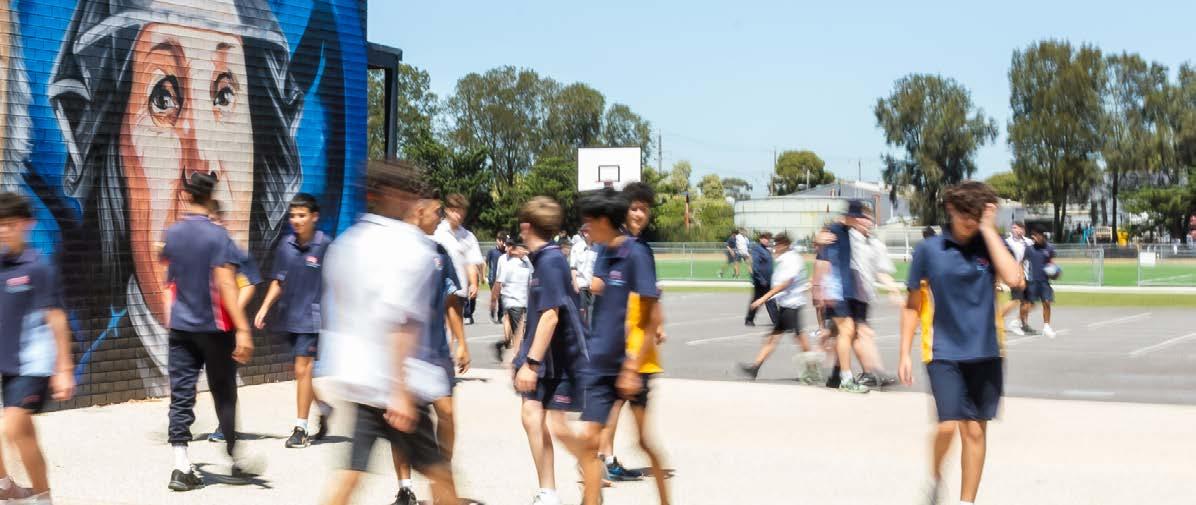
The Year 8 program builds on the foundations established in Year 7, offering students a balanced mix of core subjects and introducing elective experiences in the languages. While continuing to strengthen essential knowledge and skills, students also engage in a variety of ‘taster’ subjects across Languages, Arts, and Technology. This broad exposure helps students uncover their interests and passions, laying the groundwork for informed subject choices in the years ahead.
Each week at Emmanuel College our students participate in a formal pastoral program aimed at supporting them holistically with guidance, activities and information specific to their age and development. The pastoral program is led by teaching staff and is an opportunity for students to engage with exploring themselves as learners, as young people of faith and as positive contributors in the lives of others and their world.
All year 8 students will study these subjects in Semesters One and Two.
• Religious Education
• English
• English as an Additional Language (by invitation)
• Mathematics
• Science
• Humanities
• Health & Physical Education
• Pastoral Program
ELECTIVES
Students will choose a language to study for the year:
• Languages - Italian
• Languages - Japanese
SEMESTER LONG SUBJECTS
All Year 8 students will study these subjects in either Semester One or Two.
• The Arts - Drama
• The Arts - Music
• The Arts – Visual Art
• Design & Technology - Digital Studies
Numeracy and Literacy Support are available only to students who are invited to participate in place of the compulsory language study. This can be semester-based or year-long support.
English as an Additional Language [EAL] - if a student meets the criteria, they will be assigned to the EAL curriculum within their English subject.
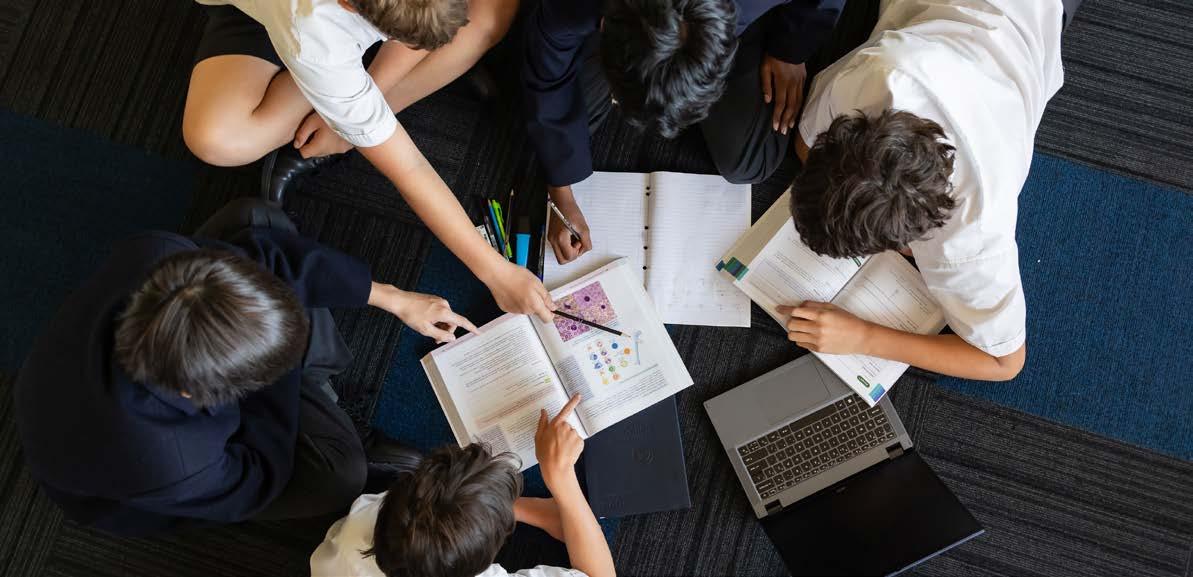
Year 9 marks an important stage in a student’s learning journey, where greater choice and independence begin to shape their educational pathway. At Emmanuel College, students select from a broad range of engaging elective subjects, allowing them to explore their interests and strengths while continuing to develop the essential skills and knowledge needed for success in senior school. This carefully balanced program encourages curiosity, deepens learning, and supports students in making informed decisions about their future studies.
Each week at Emmanuel College our students participate in a formal pastoral program aimed at supporting them holistically with guidance, activities and information specific to their age and development. The pastoral program is led by teaching staff and is an opportunity for students to engage with exploring themselves as learners, as young people of faith and as positive contributors in the lives of others and their world.
All year 9 students will choose elective options within these subject domains in Semesters One and Two.
• Religious Education
• English
• English as an Additional Language
• (by invitation)
• Mathematics
• Science
• Humanities
• Health & Physical Education
• The Arts
• Technology
• Languages
• Pastoral Program
Numeracy and Literacy Support are available only to students who are invited to participate in place of the compulsory language study. This can be semester-based or year-long support.
English as an Additional Language [EAL] - if a student meets the criteria, they will be assigned to the EAL curriculum within their English subject.
This subject is by invitation only.
Students in Year 7 will be identified through the Academic Assessment Services data and information gathered from the primary school. For Year 8 and 9 students will be identified through data from their Year 7 NAPLAN, and PAT-R testing conducted in Year 7 and 8.
The aim of the LAN program is to work with students who have identified significant need in the development of their literacy skills and knowledge. This program is not designed to be a boost to the normal curriculum but instead a supplement to support students who find the pace, tasks or concepts in their normal classes challenging.
In these classes, students will engage in activities that enable them to practice skills they need to improve their level of competence in Literacy. In Years 7, 8, and 9, this program replaces the Languages program.
LAN also utilises the QuickSmart Program, which is an evidence-based basic skills intervention program designed for middle-school students who experience persistent difficulties in literacy. The intervention program focuses on the automaticity of word recognition, fluency in reading connected texts, and the development of vocabulary. Students will also engage in the Spelling Strategies Program. This is a spelling program that has been endorsed by SPELD SA. Lastly, students will engage in a Vocabulary Intervention Program that has been designed by our Emmanuel College Speech Language Pathologist.
This subject is by invitation only.
The Numeracy program aims to close learning gaps that students may face in their mainstream mathematics classes. Based on previous years’ data and teacher recommendations, students in Years 7 to 8 are invited to enrol in Numeracy which runs in conjunction with their main mathematics class.
The focus of Numeracy is to build student confidence and preparedness in mathematics. This program is not designed to be a boost to the normal curriculum, but instead a support for students who find the pace, tasks and concepts in their main mathematics class challenging.
With smaller class sizes, students can access more targeted assistance to fill any learning gaps from previous years. Students will engage in regular and diverse exposure to key curriculum, which can involve a mixture of worksheets, handson activities, games, online learning platforms, and quizzes. This diversified learning can enable them to practice skills that they need, to improve their overall level of competency in mathematics.
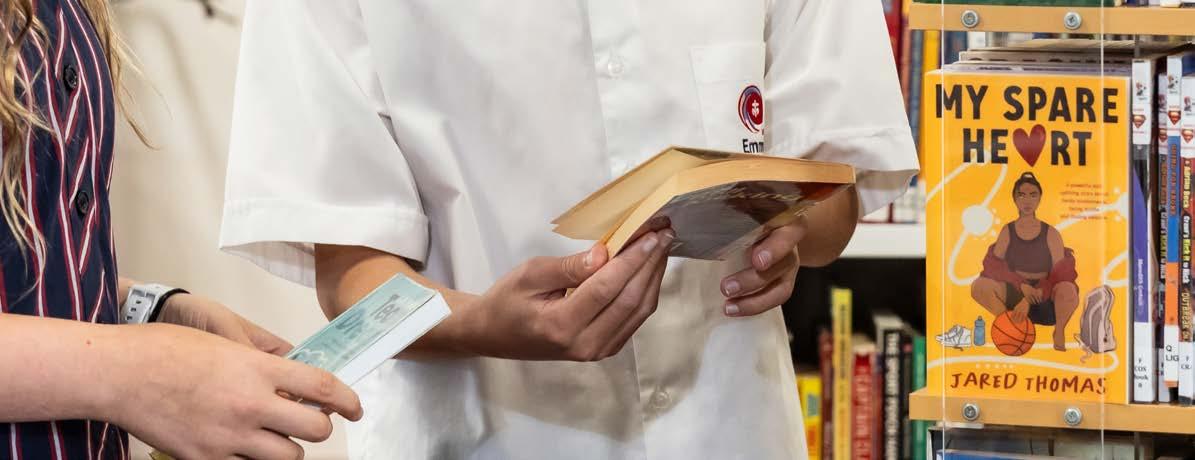
After a Language Interview is conducted, this course will be allocated to students that meet the EAL criteria. Prep –Year 10 English as an Additional Language (EAL) curriculum is designed to support the learning and language development of students for whom English is not their home language. This includes students whose language background is not English, or where English is not the main language spoken at home. Students who qualify for EAL are identified by the College or at enrolment from the Primary School. Emmanuel College is committed to supporting EAL students’ language progression and participation in all learning opportunities by assessing the three Modes:
• Speaking and Listening
• Reading and Viewing
• Writing
EAL students will receive an EAL report in place of their English report. As an EAL learner becomes proficient in all three modes of English, they will be transitioned off the EAL Curriculum and onto the Victorian F-10 English curriculum. This will be done in consultation with the student’s English teacher, EAL Coordinator, the student, and with parents. Students who qualify for in-class classroom support will receive this to aid the development of the skills in the three modes. They will also receive a Socio- Linguistic Profile to guide the support they can receive in their language development.
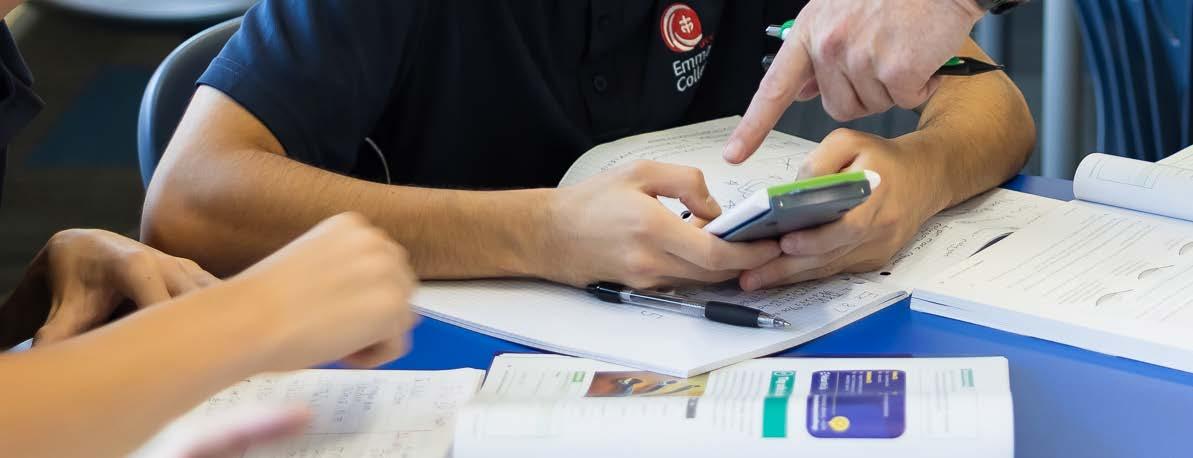
On the following pages, you’ll find general descriptions of the subjects available for students to choose from when building their Year 9 program. These summaries are designed to give an overview of each subject’s focus, key learning, and style of assessment. To help make informed choices, students are encouraged to speak with their current class teachers or relevant learning area staff for more detailed advice and guidance.
In Year 9 Religious Education, students explore the Catholic Tradition, key biblical texts, and other worldviews, including Aboriginal Spirituality. They will reflect on life’s big questions, develop a deeper understanding of Mary as a model of discipleship, and examine how faith connects with culture, history, and social justice issues such as the Stolen Generations. Learning is supported through engaging topics, regular assessment tasks, and opportunities for personal reflection and critical thinking.
Mathematics
Continue building key numeracy skills in algebra, measurement, geometry, statistics, and trigonometry. Learn how maths applies to real-world problems and prepare for senior studies through direct instruction and independent tasks.
Numeracy Support (By invitation)
Targeted support for students needing help with key maths skills. Build confidence through small group learning, hands-on activities, and practice tasks aligned to classroom content. Students’ participation in NUM classes is by invitation only.
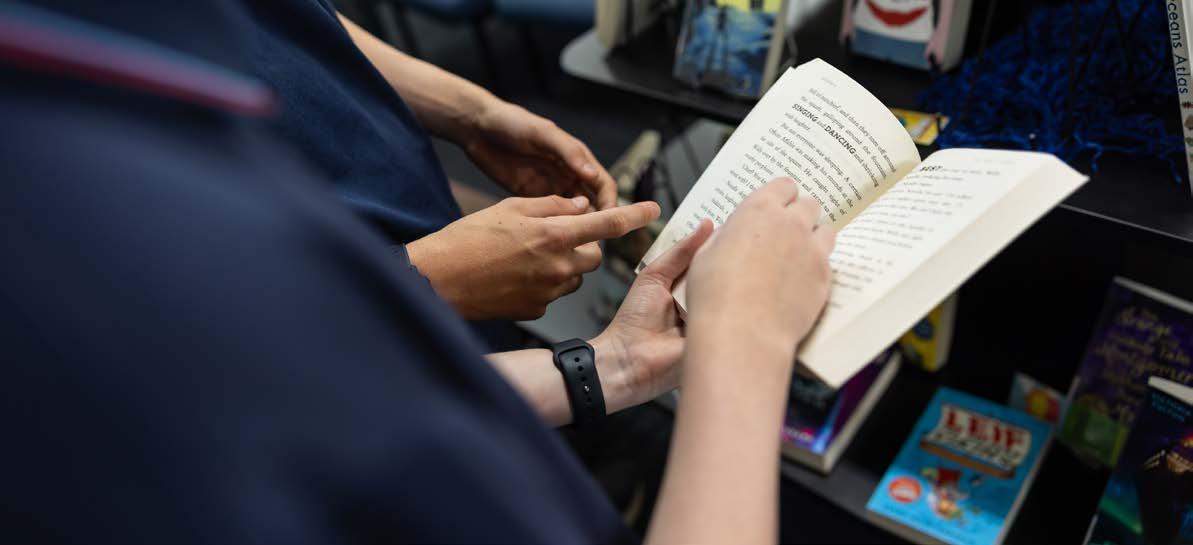
Through engaging texts and tasks, you’ll build skills in reading, writing, speaking, and listening. You’ll explore ideas and issues, while developing your voice and understanding of yourself and the world. Students will select One English Elective per semester.
English: Slam Poetry
Explore music, poetry and social justice. You’ll analyse texts, craft your own slam poem, and discover how language can inspire change.
English: Foundation Skills – Semester 1 (By invitation)
Focus on core skills in reading and writing using everyday texts. You’ll focus on learning how to decode texts, how to infer meaning and practise how to construct texts for specific purposes.
English: Foundation Skills - Semester 2 (By invitation)
Build confidence with written and spoken communication by exploring real-world texts and practising how to craft effective, purposeful writing.
English: Heroes in Texts
Unpack what it means to be a hero today by analysing comics, graphic novels and cultural narratives.
English: Shakespeare
Explore why Shakespeare’s stories still matter today. Compare original plays with modern versions and connect timeless themes to your world.
English: Young Adult Fiction
Examine how social media is portrayed in young adult fiction and discuss its impact on identity, culture, and society.
English: Dystopian Fiction
Explore fictional worlds where utopias have gone wrong. Consider what makes a society just, and how you can shape a better future.
English: Gothic Fiction
Dive into dark stories of crime and horror. Analyse how authors create suspense and explore why we’re drawn to tales of fear and mystery.
English as an Additional Language
This course provides targeted supports for students from non-English-speaking backgrounds to build confidence across reading, writing, speaking, and listening. Students will work towards full participation in the mainstream English curriculum. Students must meet specific eligibility criteria to study EAL.
Literacy Support – (By invitation)
Designed for students needing extra support with literacy, this class builds core reading, writing, and vocabulary skills. Students will gain confidence and improve foundational literacy for everyday learning. Students’ participation in LAN classes is by invitation only.
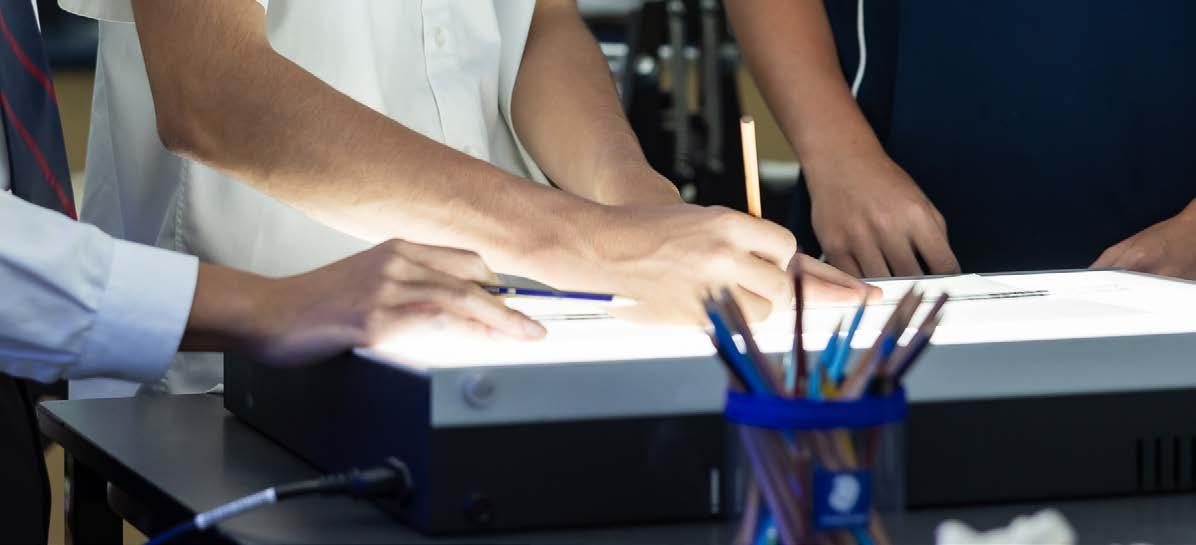
In Year 9 Arts, students explore their creativity through a range of exciting subjects including Music, Visual Art, Media, Drama, and Visual Communication and Design. They learn how to express ideas in different ways—through performing music, creating artworks, producing films, designing for real-world projects, and acting on stage. Students build confidence as they experiment with materials, digital tools, and performance techniques, and they develop important skills in planning, creating, and reflecting on their work. Whether working independently or in a team, students explore how the arts can tell stories, share messages, and make an impact on the world around them.
Music
Build skills in music performance, sound design, and live audio. Learn how to rehearse, perform and work with audio gear like a pro.
Visual Art
Experiment with a variety of materials and techniques while exploring themes of identity. You’ll create artworks that express your ideas through painting, drawing, sculpture, and more.
Media
Discover how media shapes the world around you. Use photography, film, and editing tools to create engaging media and build analysis skills.
Drama
Step into the world of Theatre, through acting, costume design and performance. Explore dramatic conventions while producing your own performances.
Visual Communication and Design
Create practical design solutions using digital and manual techniques. Learn to use Adobe tools while developing design ideas in response to real briefs
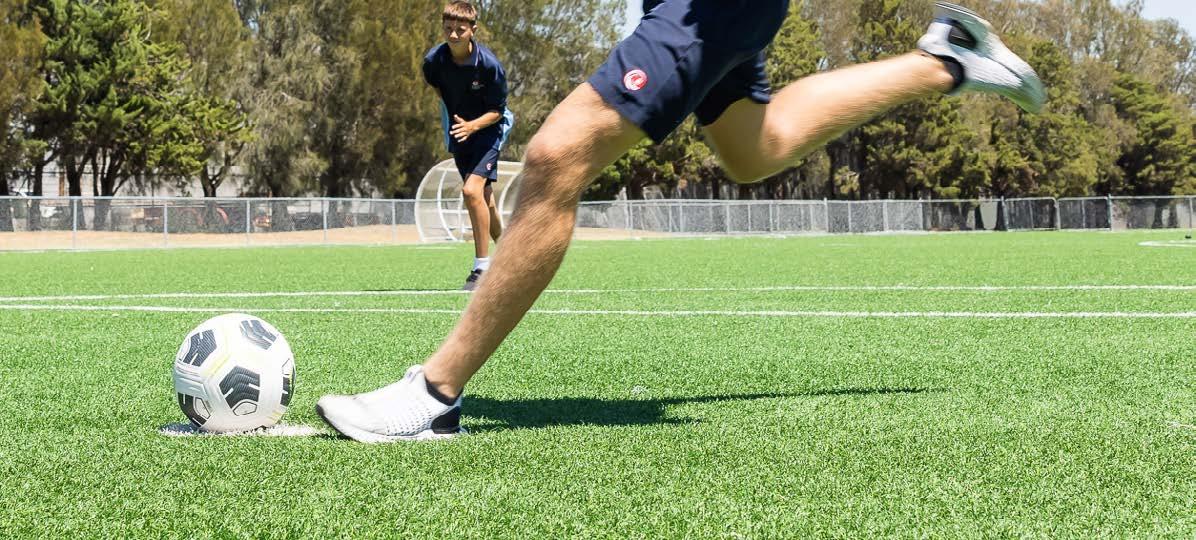
In Year 9 Health and PE, students build their understanding of physical, mental, and social wellbeing while developing the knowledge and skills to lead a healthy, active life. They explore how the body works, how to stay fit and strong, and how to make informed choices about nutrition, relationships, and mental health. Across practical and theory-based classes, students build teamwork, leadership, and decision-making skills while participating in a wide range of physical activities. The course is split into two semester-long electives so students can explore areas of personal interest.
SEMESTER 1 (COMPULSORY)
Health and Wellness
Discover what it means to be healthy in both body and mind. This subject focuses on lifelong wellbeing through topics like nutrition, stress, sleep, and mental health. Students also try low-impact physical activities such as yoga, walking, and hiking while learning how to build healthy habits for the future.
Each area of study will be accessible to all levels of fitness and ability.
• Sport and Fitness
Learn how athletes train and perform. Explore sports science topics like anatomy, biomechanics, and training programs while developing your own skills and fitness through team and individual sports.
• High Intensity Fitness Training
Push yourself with high-energy workouts and learn how the body responds to exercise. Design and lead your own fitness sessions while developing skills in motivation, coaching, and personal training.
• Outdoor Recreation
Step outside the classroom and into nature. This subject includes activities like hiking, climbing, and kayaking, and builds important life skills in teamwork, risk management, and resilience—culminating in an exciting 3-day outdoor adventure camp.

In Year 9 Humanities, students develop a deeper understanding of the world by examining the interactions between people, places, economies, systems of government, and historical events. In Semester One all students complete a core of humanities topics. In Semester 2, students choose an elective that blends areas of study—either exploring historical and geographical issues or focusing on civics and business. Throughout the year, students apply critical and creative thinking to real-world issues, learning to communicate informed arguments and reflect on their role as active, informed citizens.
In Semester One, all students complete a core unit that builds essential skills in analysing sources, interpreting data, understanding key concepts such as democracy, interconnection, change, and sustainability, and evaluating evidence to form conclusions about the world around them.
• History Students learn about the major events that shaped the modern world, including colonisation, the Industrial Revolution, and World War I. They explore how these events impacted people and places — especially in Australia — and why they still matter today.
• Geography
Geography helps students understand how people connect with places and how we affect the world around us. Students will learn how to investigate realworld problems — and how we can help create a more sustainable future.
• Civics
Students discover how Australia’s democracy works — who makes decisions, how laws are created, and what rights and responsibilities we have as citizens. They’ll explore how young people can make a difference, and what it means to be part of a diverse and fair society.
• Business
Students will explore how money, work, and enterprise shape our lives. Students will learn how businesses operate, how people make financial decisions, and how the economy affects jobs and communities.
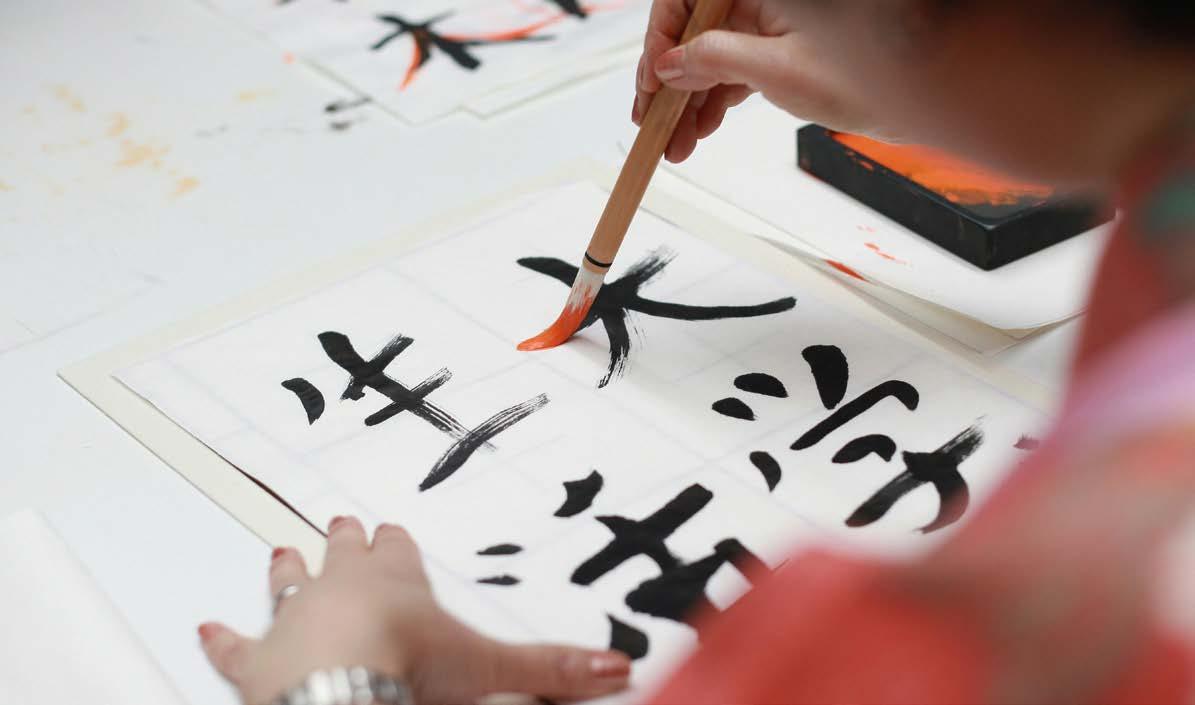
In Year 9 Languages, students continue to develop their speaking, listening, reading and writing skills in Italian, Japanese or Spanish while exploring the cultures and communities where these languages are spoken. They learn to communicate about everyday life, express ideas and opinions, engage in practical conversations, and build vocabulary and grammar knowledge while deepening their understanding of how language and culture are connected.
Note: To meet the compulsory language requirement in Year 9, students have two options. Those who wish to fulfil the requirement without continuing language studies beyond Year 9 are advised to select a semester-based language course. In contrast, students who intend to continue their language learning throughout Year 9 and into future years are encouraged to enrol in the full-year language study of their choosing.
Italian: Semester-based
Explore Italian fashion and music while learning vocabulary and grammar. Discover iconic brands and the influence of music from opera to pop.
Italian: Authentic Italy – Full Year
Study Ancient Rome and modern Italy through language, history, and culture. Deepen your grammar skills and explore life as a local and a tourist.
Japanese: Language and Culture – Semester-based
Build basic Japanese language skills and explore daily life, school, food, and traditions. Learn how to communicate about hobbies, travel, and activities.
Japanese – Full Year
Dive deeper into Japanese language and culture. Explore daily routines, school life, shopping, and the seasons while developing your reading, writing, and speaking skills.
Spanish – Full Year
Embark on a journey from Spain to Latin America. Explore history, culture, and modern society while developing your Spanish language skills.
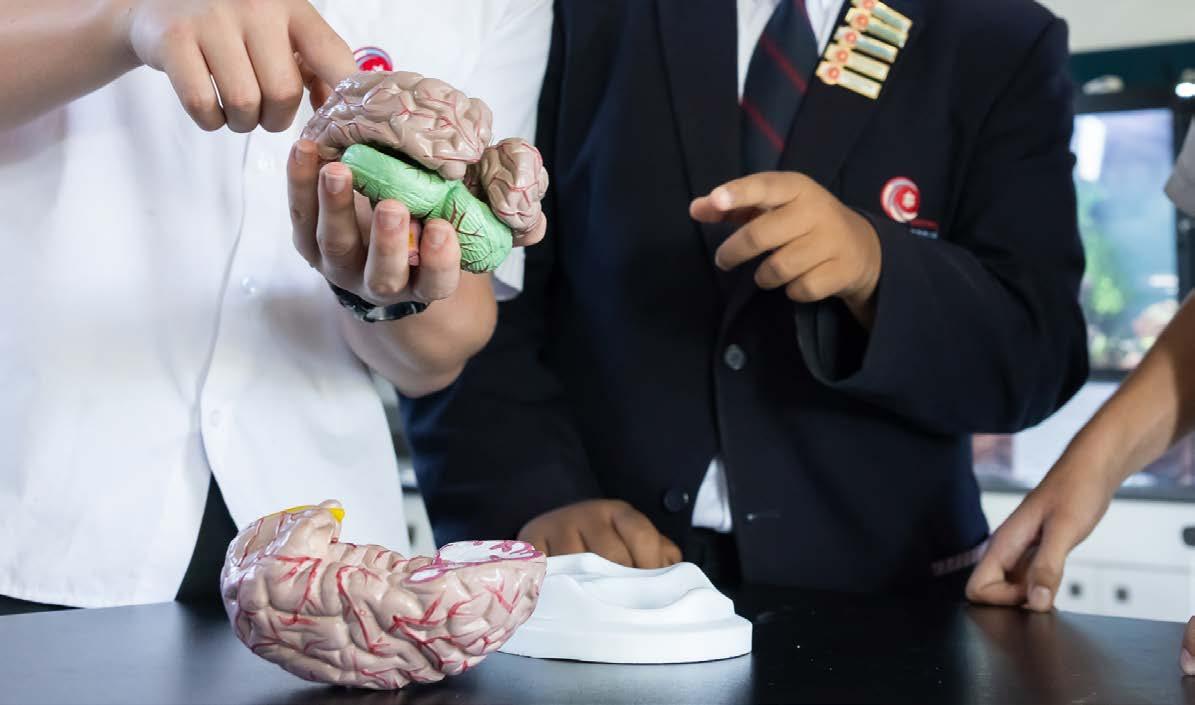
In Year 9 Science, students explore how science helps us understand and respond to real-world problems—from climate change and infectious diseases to electricity, space travel, and environmental sustainability. Throughout the year, students build skills in scientific thinking, problem-solving, and investigation as they study key areas of biology, chemistry, physics and Earth and space sciences. Topics include the science behind climate change, how diseases spread, the chemistry of ecosystems, radiation and its uses, electricity and energy, and the challenges of space exploration. Students take part in hands-on experiments, group projects, and real-life simulations to explore how science shapes our world and future. By the end of the course, students will have a deeper understanding of scientific concepts and how they apply to everyday life, as well as the skills to ask questions, test ideas, and think critically like a scientist.
SEMESTER 1
Science: Biology & Chemistry
Explore how living things interact in ecosystems and how energy flows through food chains. Learn how pollution affects marine life and how biology and chemistry help us understand and protect the environment.
Find out how your body fights off disease and how illnesses spread through communities. Investigate how vaccines work, what herd immunity means, and why global health matters.
Discover the building blocks of matter—atoms—and how they can react to form new substances. Learn how radiation works, how it’s used in medicine, and how to stay safe around it.
SEMESTER 2
Science: Physics & Earth Sciences
Explore electricity, circuits, and magnetism. Learn how we generate power, what makes energy sustainable, and how we can reduce our impact on the environment.
Investigate natural disasters, Earth’s geology, and the science behind space travel.
Examine how Earth’s systems work and how human activity is changing our climate. Learn about ocean acidification, the greenhouse effect, and how science can help us protect the planet.
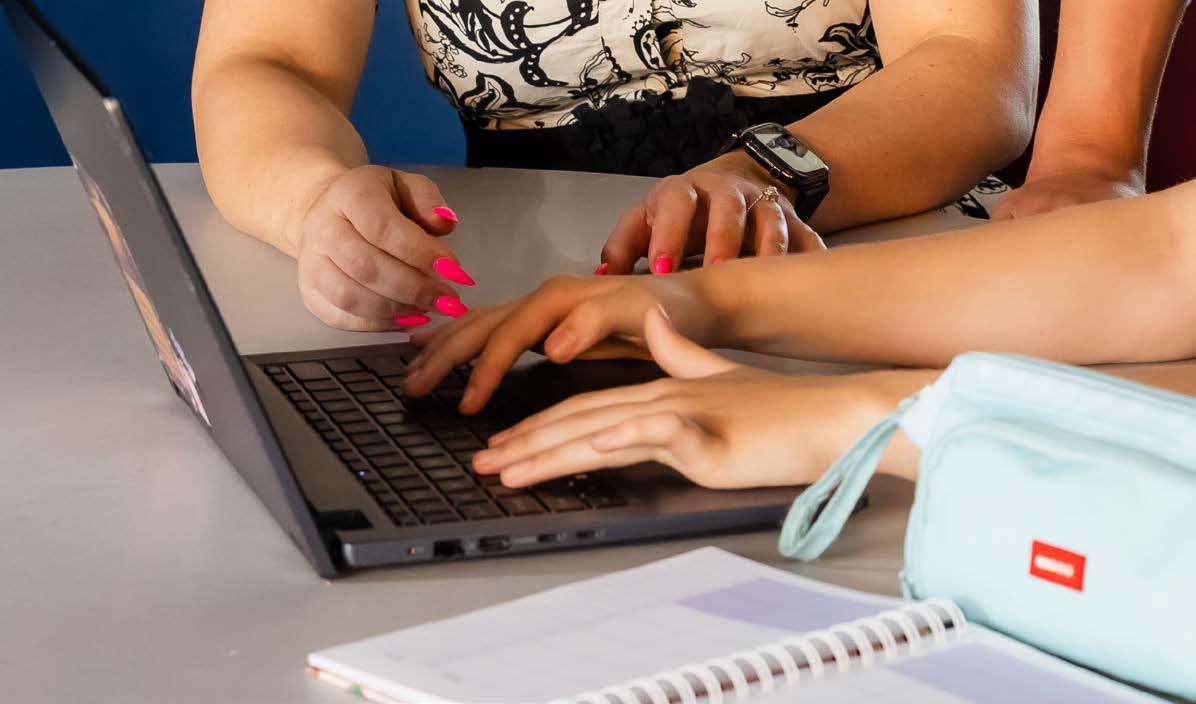
In Year 9 Technology, students explore how creative ideas and practical skills can solve real-world problems. Through a range of hands-on subjects—such as coding, robotics, food, fashion, metalwork, woodworking, and design—students learn to plan, test, and refine solutions using the design thinking process. They build skills in using tools, digital technologies, and materials safely and effectively, while learning to evaluate their work based on function, sustainability, and user needs. Whether building an autonomous robot, designing jewellery, developing a video game, or creating a cultural food experience, students combine creativity with critical thinking to bring their ideas to life.
• Technology: Digital Technology
Create your own video game while learning coding, design thinking, and how smart devices are shaping the world.
• Technology: Wooden Mechanical Toys and Games
Design and build your own toys or puzzles using woodwork skills, mechanisms, and CAD tools. Bring your ideas to life!
• Technology: Food Studies
Discover global cuisines and ingredients while developing your cooking skills. Learn food safety and explore the connection between food and culture.
• Technology: Robotics
Build and program your own robots using Lego Mindstorms. Use inquiry learning to solve real-world challenges and explore engineering ideas.
• Technology: Jewellery and Metalwork
Design and make custom jewellery pieces. Learn to work with metals and tools while creating a collection for a chosen occasion.
• Technology: Autonomous Vehicles
Design and build a small self-driving rover. Learn basic electronics and programming through hands-on projects using Arduino.
• Fashion for the Future (Textiles)
Design and create textiles inspired by iconic fashion and sustainability. Learn sewing techniques, study fashion history, and build a personal portfolio.
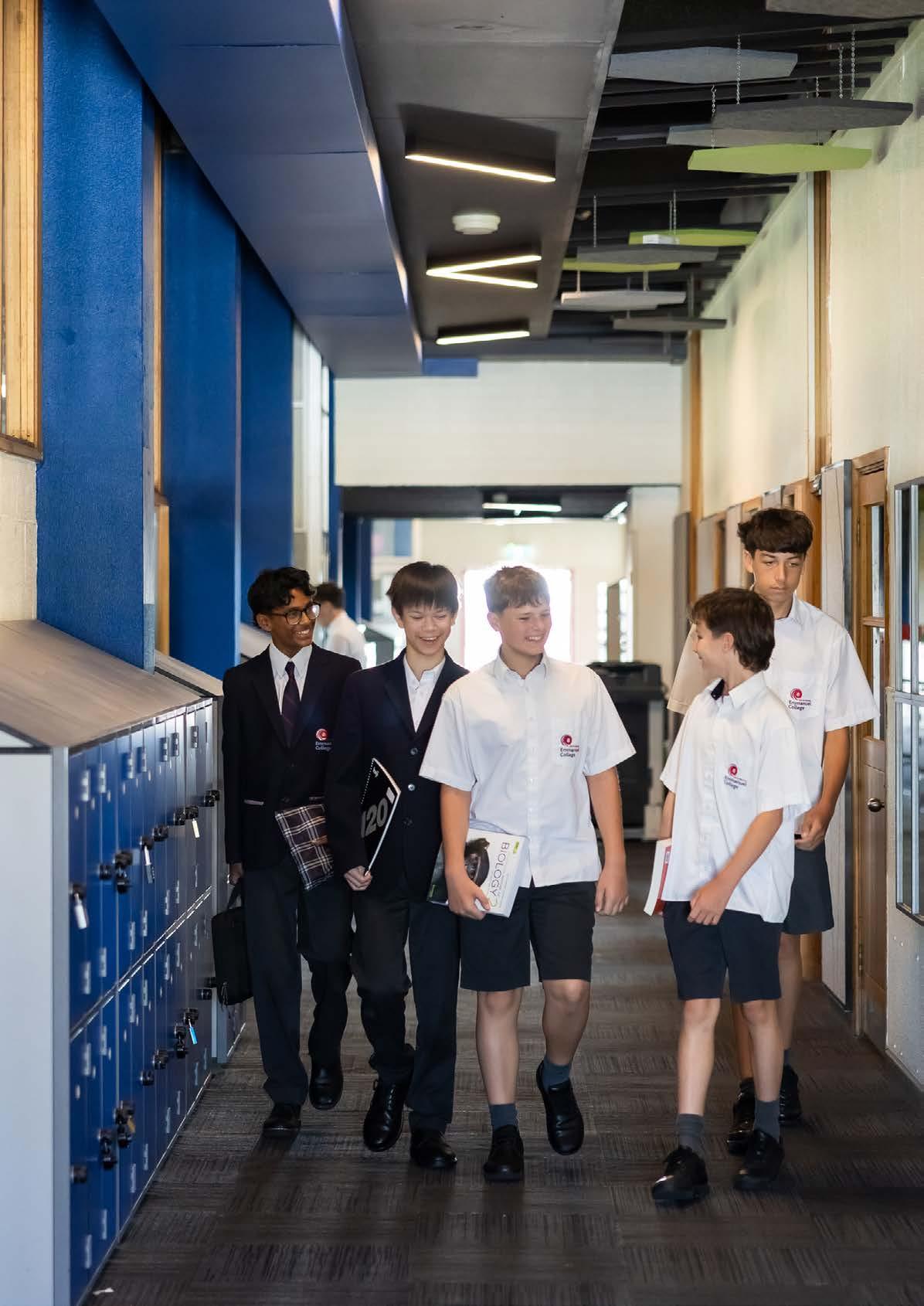



ST PAUL’S CAMPUS
423 Blackshaws Road, Altona North VIC 3025 (03) 8325 5100 principal@ecmelb.catholic.edu.au
NOTRE DAME CAMPUS
2–40 Foxwood Drive, Point Cook VIC 3030
P.O. Box 5, Altona North VIC 3025 (03) 8325 5100 principal@ecmelb.catholic.edu.au
